Floodgates open: Here’s who’s running for Speaker as GOP seeks third nominee
The field of those vying to be the House GOP’s third nominee for Speaker quickly became crowded after the conference voted Friday to drop House Judiciary Committee Chairman Jim Jordan (R-Ohio).
The conference pushed Jordan aside in a secret-ballot internal vote shortly after he lost a third House floor vote Friday. Before Jordan, House Majority Whip Steve Scalise (R-La.) narrowly won the nomination — but he withdrew his name a day later after supporters of Jordan refused to support him. Scalise said Tuesday that he would not be seeking the nomination again.
After two failed nominees, the floodgates have opened, with potential successors to former Speaker Kevin McCarthy (R-Calif.) jockeying for the role.
House Republicans are set to meet behind closed doors for their candidate forum Monday at 6:30 p.m., then they will move to an internal nomination election Tuesday at 9 a.m. The deadline for candidates to file their candidacies was on Sunday at noon.
House Budget Committee Chairman Jodey Arrington (R-Texas) — who had expressed interest in a Speaker bid Friday and was overheard asking his wife on the phone, “What do you want me to do, honey?” — announced Sunday that he opted against seeking the gavel.
Nine Republicans officially filed to run for Speaker by that noon deadline, House Republican Conference Chairwoman Elise Stefanik (R-N.Y.) announced Sunday.
Here is who they are.
House Majority Whip Tom Emmer (R-Minn.)
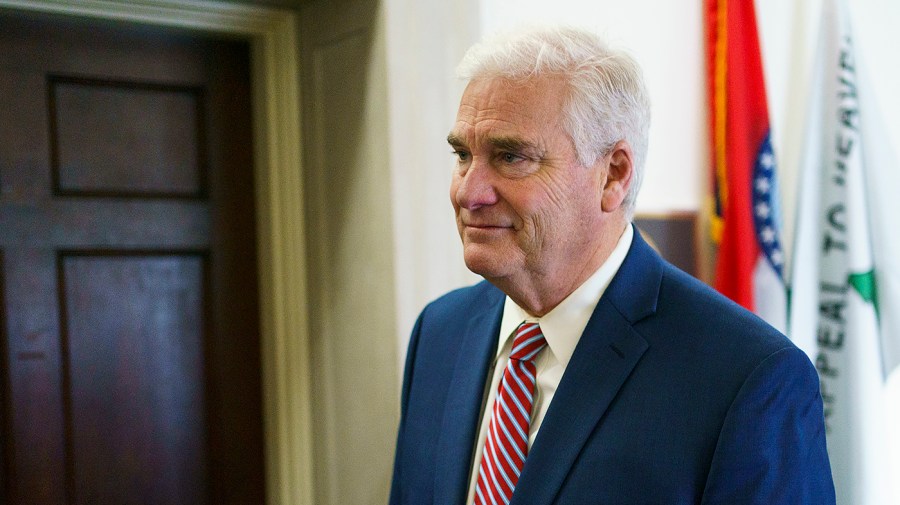
Emmer made his run for Speaker official Saturday, and he will likely be a front-runner for the position.
The majority whip — who previously served as chairman of the National Republican Congressional Committee (NRCC) — would be the highest-ranking lawmaker to jockey for the position. He has endured leadership races in the past, a fact that could help him prevail this time around.
“If given the opportunity to be your Speaker, we will use that same culture of teamwork, communication, and respect to build on the moments that brought us success, learn from our mistakes, and keep fighting for each and every one of you and our Republican majority,” Emmer wrote in a letter to colleagues.
Emmer also wrote that he will “always be honest and direct with all of you, even if we disagree. I will never make a promise I cannot fulfill. I expect to be held accountable, and you can expect that we will also keep you to your word.”
And, even before announcing a bid, the Minnesota Republican received a major boost: McCarthy endorsed him as his successor, The Hill confirmed.
“He is the right person for the job. He can unite the conference. He understands the dynamics of the conference. He also understands what it takes to win and keep a majority,” McCarthy told Punchbowl News.
Top Stories from The Hill
Rep. Kevin Hern (R-Okla.)

Hern, the chairman of the Republican Study Committee, announced his bid for Speaker while walking out of the closed-door conference meeting in which GOP lawmakers voted to dump Jordan.
Hern considered running for Speaker after McCarthy’s ouster — he worked towards contacting members of the conference while eyeing a bid — but ultimately stayed on the sidelines as Scalise and Jordan duked it out.
Now, Hern says he is in. And after a blistering few weeks that pitted Republicans against one another, he thinks he is the one to unite the conference.
“It’s pretty obvious that our delegation is looking at something to be different than what we’ve seen so far. I bring a different perspective than possibly anybody else that could be running in this race,” he told reporters when asked why he is running.
“People want to be heard, they want to be valued, and I think that’s what you’re seeing right now,” he added. “There’s a lot of historical relationships that some are not going to ever be able to work around, and I don’t have those negatives out there.”
House Republican Conference Vice Chairman Mike Johnson (R-La.)
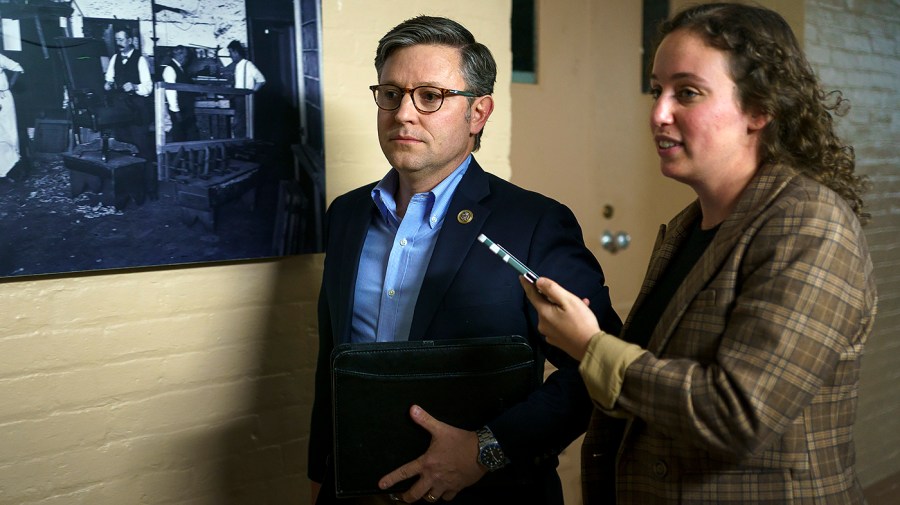
Johnson made his bid for Speaker official Saturday.
“We all agree the urgency of this hour demands a specific plan and bold, decisive action. It also demands a leader who will humble himself each day before Almighty God, selflessly serve the full membership of this body, and fight ceaselessly for our core conservative principles and policies,” Johnson said in a letter to colleagues sent Saturday and obtained by The Hill.
He listed out seven commitments: restore trust, advance a comprehensive policy agenda, promote individual members, engage members, effectively message, build and utilize external coalitions and develop and grow the majority.
The fourth-term lawmaker is an attorney and a former talk show host who is well-liked in the House GOP. He serves on the House Judiciary Committee.
Johnson had been taking calls from other members about running for Speaker if Jordan failed to secure the support he needed as early as last week, before Jordan’s first failed floor vote. But Johnson had been actively supporting Jordan for Speaker.
Rep. Byron Donalds (R-Fla.)
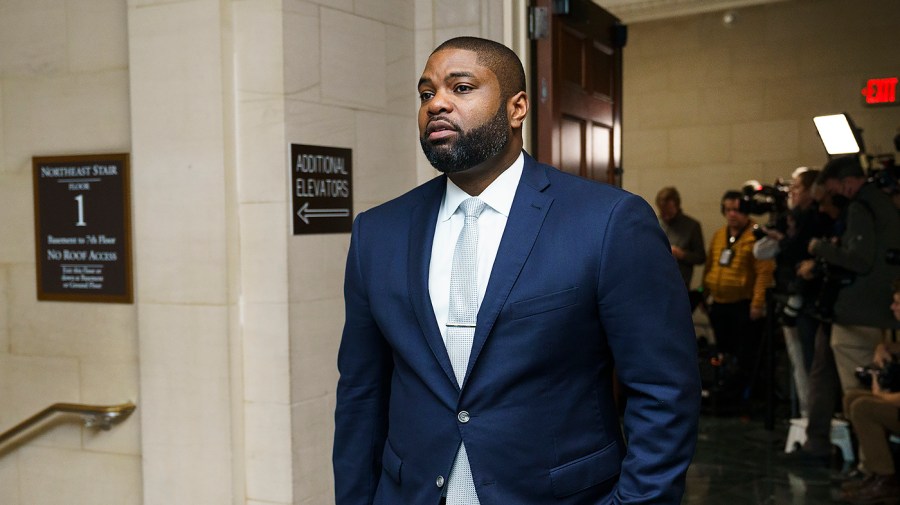
Donalds, a second-term lawmaker who sits on the Financial Services and Oversight committees, is running for Speaker.
“My sole focus will be securing our border, funding our government responsibly, advancing a conservative vision for the House of Representatives and the American people, and expanding our Republican majority,” Donalds said in an announcement Friday night.
“We come from different walks of life but share the common pursuit of a more perfect union. As Speaker, every voice in our conference will have a seat at the table to ensure our unity and consensus on the legislative battles we face,” Donalds said.
Donalds, a frequent presence in conservative media, is one of only four Black Republicans in the House.
He had received votes for the Speakership from GOP defectors both during McCarthy’s 15-ballot Speaker race in January and during Jordan’s three ballots this week.
Rep. Jack Bergman (R-Mich.)

Bergman, a retired Marine Corps lieutenant general and a fourth-term lawmaker, is relatively unknown nationally and was not on many peoples’ radar as a potential Speaker candidate until this week. But after two failed Speaker nominees, more dark horse candidates are throwing their names out.
“The regular functioning of the federal government can’t wait on useless infighting and arguments,” Bergman said in a statement. “What matters right now is choosing a Speaker in order to make sure that our government — and particularly our military — is funded, and that both our homeland and our critical allies are secure in this time of crisis.”
“What we need right now is a Speaker who has experience leading and can put ego aside to work together for the American people. We need a leader who shuns permanent power and recognizes the current crisis of leadership. I’m ready to serve. Together we can end the deadlock, and win the vote,” Bergman said.
Rep. Austin Scott (R-Ga.)
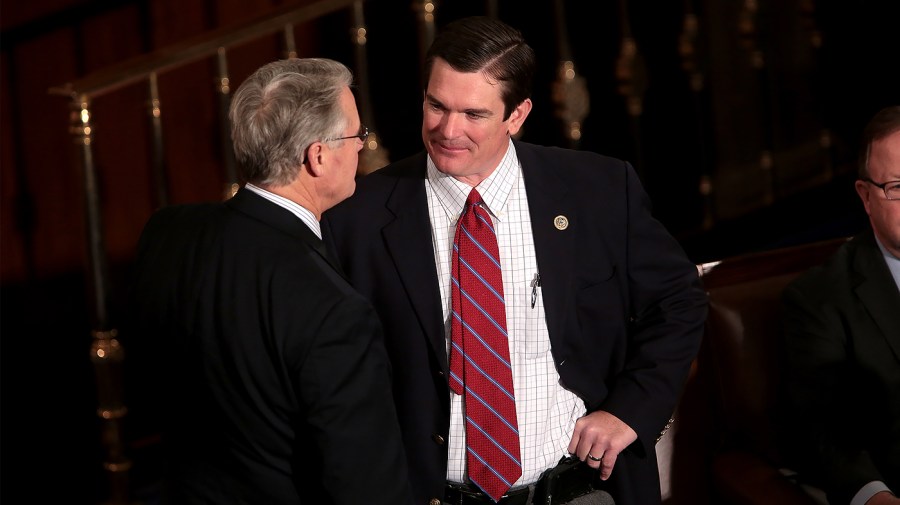
Scott — a seventh-term lawmaker from Georgia — was largely seen as an under-the-radar backbencher until last week, when he launched a last-minute challenge to Jordan for the Speakership.
Scott is now back in.
Scott lost the secret ballot against Jordan in a 124-81 vote, a fairly strong showing that surprised many, considering he jumped in the race minutes before the election, and he told reporters at the time, “I don’t necessarily want to be the Speaker of the House. I want a House that functions correctly, but the House is not functioning correctly right now.”
In his announcement Friday, Scott said the GOP conference needs to “do the right things the right way.”
“If we are going to be the majority we need to act like the majority, and that means we have to do the right things the right way. I supported and voted for Rep. Jim Jordan to be the Speaker of the House. Now that he has withdrawn I am running again to be the Speaker of the House,” Scott wrote on X, the platform formerly known as Twitter.
Rep. Pete Sessions (R-Texas)
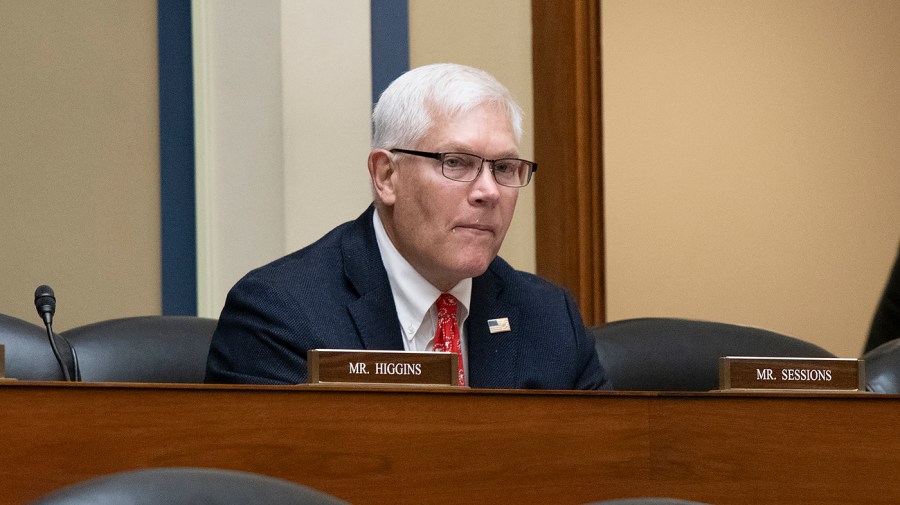
Sessions announced Friday afternoon that he is running for Speaker, making a move to reenter the leadership fray after taking a backseat in recent years.
Sessions served as chairman of the NRCC from January 2009 until January 2013. Republicans won the majority in 2010, netting 63 seats, and they maintained their majority in 2012.
Sessions then moved to be chairman of the powerful House Rules Committee and held the gavel from January 2013 through January 2019.
Now, after more than four years back in the rank and file, Sessions is making a play to move back into the top echelons of the conference — this time, in the highest position.
“Congressman Sessions believes he can forge a positive path as a conservative leader who can unite the Conference,” his office wrote in a statement.
Rep. Dan Meuser (R-Pa.)

Meuser officially filed to run for Speaker, according to the list of declared candidates Stefanik posted Sunday. He had told reporters following Friday’s closed-door meeting that he is “strongly considering” running for Speaker.
“I come from the business world and I plan to bring, if I run, a business perspective to things and gain consensus and do the things that are necessary in order to get 217 votes,” Meuser told reporters Friday after the closed-door meeting.
Meuser first came to Congress in 2019 after serving as Pennsylvania secretary of revenue. He currently sits on the Financial Services and Small Business committees.
Rep. Gary Palmer (R-Ala.)
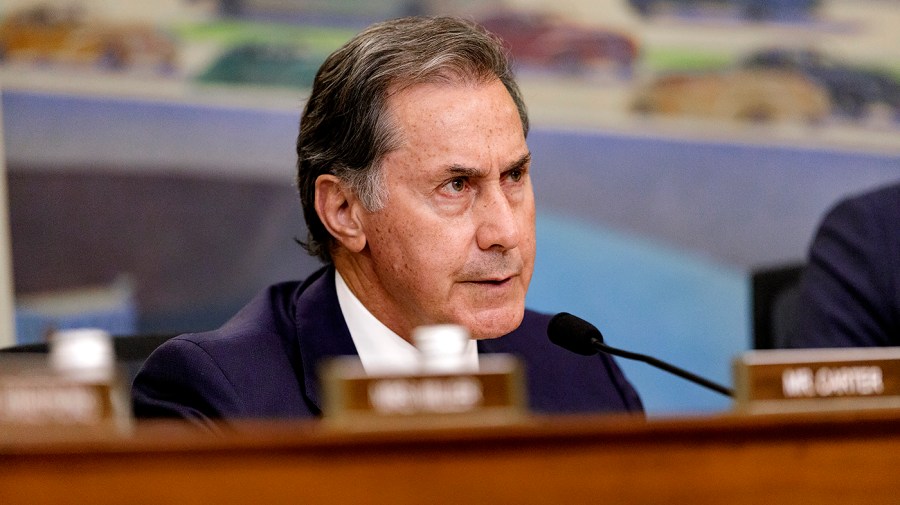
Palmer was a surprise entry to the Speaker race when Stefanik announced the list of declared candidates Sunday.
He elaborated on the announcement in a post to X, the social media platform formerly known as Twitter, Sunday night.
“There is a distinct difference between our vision for a prosperous and strong America and the vision of the Democrats that has done so much harm. This is why I decided to step forward in the race for Speaker of the House,” Palmer wrote. “To do what I can to put our differences behind us and unite Republicans behind a clear path forward, so we can do our job for the benefit of the American people.”
The fifth-term congressman has been in House GOP leadership as chairman of the Republican Policy Committee since 2019.
Before coming to Congress, Palmer founded the conservative Alabama Policy Institute think tank, and he served as its president for 24 years.
Rebecca Beitsch contributed.
Updated Sunday, Oct. 22 at 6:41 p.m.
Copyright 2024 Nexstar Media Inc. All rights reserved. This material may not be published, broadcast, rewritten, or redistributed..















